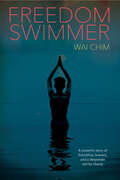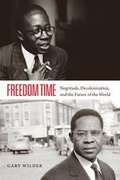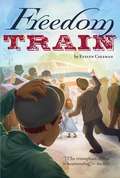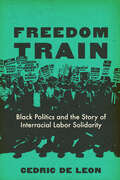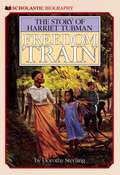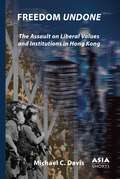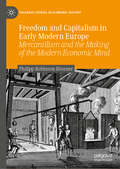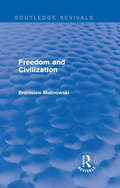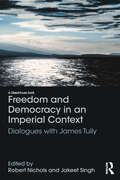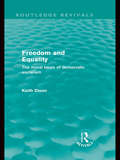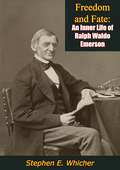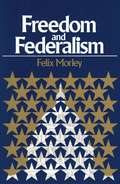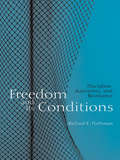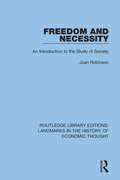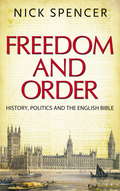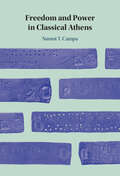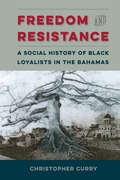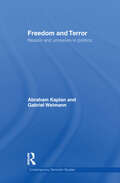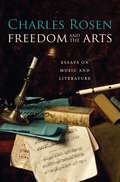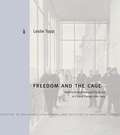- Table View
- List View
Freedom Swimmer
by Wai ChimA powerful story of friendship, bravery, and a desperate bid for freedom, inspired by true events.Ming survived the famine that killed his parents during China's "Great Leap Forward", and lives a hard but adequate life, working in the fields.When a group of city boys comes to the village as part of a Communist Party re-education program, Ming and his friends aren't sure what to make of the new arrivals. They're not used to hard labor and village life. But despite his reservations, Ming befriends a charming city boy called Li. The two couldn't be more different, but slowly they form a bond over evening swims and shared dreams.But as the bitterness of life under the Party begins to take its toll on both boys, they begin to imagine the impossible: freedom.
Freedom Time: Negritude, Decolonization, and the Future of the World
by Gary WilderFreedom Time reconsiders decolonization from the perspectives of Aimé Césaire (Martinique) and Léopold Sédar Senghor (Senegal) who, beginning in 1945, promoted self-determination without state sovereignty. As politicians, public intellectuals, and poets they struggled to transform imperial France into a democratic federation, with former colonies as autonomous members of a transcontinental polity. In so doing, they revitalized past but unrealized political projects and anticipated impossible futures by acting as if they had already arrived. Refusing to reduce colonial emancipation to national independence, they regarded decolonization as an opportunity to remake the world, reconcile peoples, and realize humanity's potential. Emphasizing the link between politics and aesthetics, Gary Wilder reads Césaire and Senghor as pragmatic utopians, situated humanists, and concrete cosmopolitans whose postwar insights can illuminate current debates about self-management, postnational politics, and planetary solidarity. Freedom Time invites scholars to decolonize intellectual history and globalize critical theory, to analyze the temporal dimensions of political life, and to question the territorialist assumptions of contemporary historiography.
Freedom Train
by Evelyn ColemanAn enthralling account of a young boy&’s struggle to help freedom triumph over fear in the 1940s American South. It&’s 1947, and twelve-year-old Clyde Thomason is proud to have an older brother who guards the Freedom Train—a train that is traveling to all forty-eight states carrying the country&’s most important documents, including the Declaration of Independence and the Bill of Rights. Clyde hasn&’t told his parents he won&’t perform the Freedom Pledge because of stage fright, nor has he mentioned his confusing friendship with a boy of color. So when the townspeople threaten William&’s family, Clyde has a choice to make: Will he keep quiet, or stand up for real freedom? Ideal for classrooms, Freedom Train contains historical photos of the Freedom Train and its guards, as well as an author&’s note that provides additional information about the history of the Freedom Train.
Freedom Train: Black Politics and the Story of Interracial Labor Solidarity
by Cedric De LeonRevealing the central role of Black activists in spurring interracial solidarity in the US labor movement. Most accounts of interracial solidarity focus on white union activists. In Freedom Train, Cedric de Leon, a former organizer and elected leader in the US labor movement, argues that we can't comprehend the history of workers' triumphs in the United States without investigating the role of Black liberation. This book shows that, from the early twentieth century to the years immediately following the March on Washington and beyond, independent Black labor organizations have pushed the white labor movement toward a fierce and effective interracial solidarity. Drawing on the minutes, correspondence, and speeches of Black labor activists and organizations from 1917 to 1968, de Leon reveals that Black people have been the most ardent and consistent proponents of racial inclusion, leadership representation, and programs linking economic and racial justice. He also demonstrates how conflict and consensus among Black labor groups fueled the fight for solidarity, as different factions split and consolidated to form successive and sometimes competing Black labor organizations. Freedom Train centers the contributions of Black people to the multiracial unions we have today and demonstrates that internal conflict can be a source of strategic innovation and social movement success.
Freedom Train: The Story of Harriet Tubman
by Dorothy SterlingBorn into slavery, young Harriet Tubman knew only hard work and hunger. Escape seemed impossible-- certainly dangerous. Yet Harriet did escape North, by the secret route called the Underground Railroad. Once she was free, Harriet didn't forget her people.
Freedom Undone: The Assault on Liberal Values and Institutions in Hong Kong (Asia Shorts)
by Michael C. DavisWhat happens when liberal constitutional institutions are undone? Can Freedom survive the loss of separation of powers with the associated legal and political accountability? The Chinese Communist Party has been at the forefront in its disdain for liberal institutions and promoting illiberal alternatives. This disdain placed Hong Kong people on the frontlines of the global struggle for freedom. Since its handover from Britain, Hong Kong has felt the brunt of China’s illiberal agenda, recently with increased intensity since the crackdown in 2019 and Beijing’s imposition of a National Security Law in 2020. Thousands have been jailed and a city famous for vigorous protests has been silenced. Professor Michael Davis, a close observer who taught human rights and development in the city for three decades, takes us on the constitutional journey of both the city’s vigorous defense of freedom and its repressive undoing—a painful loss for Hong Kong and a lesson for the world.
Freedom and Capitalism in Early Modern Europe: Mercantilism and the Making of the Modern Economic Mind (Palgrave Studies in Economic History)
by Philipp Robinson RössnerThis book hinges upon ideas and discourses variously known under labels such as “Mercantilism” and “Cameralism”. Often viewed as antithesis of capitalism, inclusive institutions and good economy in the “West”, this book re-assembles them and builds them into a coherent origin story of modern capitalism. It explores the field of intellectual and conceptual history, especially the history of Renaissance and Mercantilism in a longer history of capitalism. Rather than hindrances, the author argues that Mercantilist and Cameralist political economies presented essential stepping stones of modern capitalism, in Britain and beyond. This book will be of interest to academics and students in general economic history, the history of capitalism, economic development and the history of economic thought.
Freedom and Civilization (Routledge Revivals)
by Bronislaw MalinowskiFrom the early days of Hitler’s rise to power, Bronislaw Malinowski was an outspoken opponent of National Socialism. In response to this, Malinowski began to devote much attention to the analysis of war, from its development throughout history to its disastrous manifestations at the start of the Second World War.Freedom and Civilization, first published in 1947, is the final expression of Malinowski’s basic beliefs and conclusions regarding the war, totalitarianism and the future of humanity. This book will be of interest to students of politics and history.
Freedom and Democracy in an Imperial Context: Dialogues with James Tully
by Robert Nichols Jakeet SinghFreedom and Democracy in an Imperial Context: Dialogues with James Tully gathers leading thinkers from across the humanities and social sciences in a celebration of, and critical engagement with, the recent work of Canadian political philosopher James Tully. Over the past thirty years, James Tully has made key contributions to some of the most pressing questions of our time, including: interventions in the history of moral and political thought, contemporary political philosophy, democracy, citizenship, imperialism, recognition and cultural diversity. In 2008, he published Public Philosophy in a New Key, a two-volume work that promises to be one of the most influential and important statements of legal and political thought in recent history. This work, along with numerous other books and articles, is foundational to a distinctive school of political thought, influencing thinkers in fields as diverse as Anthropology, History, Indigenous Studies, Law, Philosophy and Political Science. Critically engaging with James Tully’s thought, the essays in this volume take up what is his central, and ever more pressing, question: how to enact democratic practices of freedom within and against historically sedimented and actually existing relationships of imperialism?
Freedom and Equality: The Moral Basis of Democratic Socialism (Routledge Revivals)
by Keith DixonUnashamedly polemical, this reissue of Freedom & Equality, first published in 1986, presents a strong and persuasively argued case for democratic socialism. In contrast to many recent books justifying conservatism and varieties of Marxism, Keith Dixon defends the two great principles underpinning democratic socialism – freedom and equality. He aims both to restore the idea of freedom to its proper place in the political vocabulary of the left and to defend a stark version of freedom as absence of constraint. Only this version of freedom, he argues, is consistent with the proper defence of civil liberties. Dixon also defends radical egalitarianism from its critics, who either repudiate its full force or reject it out of hand. He believes that freedom and equality are potentially realizable socialist goals, that democratic socialism is not necessarily linked with fraternalism, and – above all – that it should be based upon a firm and consistent conception of individuality.
Freedom and Fate: An Inner Life of Ralph Waldo Emerson
by Stephen E. WhicherFirst published in 1953, Freedom and Fate: An Inner Life of Ralph Waldo Emerson is widely recognized to be the most illuminating of commentaries on Emerson’s thought.“EMERSON enjoyed, as he wished, an original relation to the universe, one which, like all living relationships, developed and altered with time. Throughout his life he followed the advice of the poet who speaks at the end of Nature: ‘Build therefore your own world.’ His different insights are so many rays of organization thrown out by the exploring soul, in the words of Bacon he cited so often, to conform the shows of things to the desires of the mind.“As his mind was complex and many-sided, so was the world it built. His greatest gift was his ability to endure the push and pull of contrary directions in his thought without a premature reaching out after conclusions that would do violence to his whole nature. Typically, he came to terms with conflicts as they developed among his truths by dramatizing them, by giving their opposition full play on the stage of his work. Consequently, his writings, and particularly his journals, record a genuine drama of ideas, a still little-known story that adds a new dimension of interest to his thought. This book is intended to ‘produce’ that drama. It traces Emerson’s surprisingly eventful voyage in the world of the mind.”
Freedom and Federalism
by Felix MorleyNo less relevant today, the book provides a perceptive diagnosis of the collapse of States' rights in modern America; and it seeks the restoration of a constitutional balance between central and state authorities.
Freedom and Its Conditions: Discipline, Autonomy, and Resistance
by Richard FlathmanFirst published in 2003. Routledge is an imprint of Taylor & Francis, an informa company.
Freedom and Necessity: An Introduction to the Study of Society (Routledge Library Editions: Landmarks in the History of Economic Thought)
by Joan RobinsonOriginally published in 1970, this book examines the origins of social organizations, the development of Robinson Crusoe economies and the conception of property or rightful ownership, as well as the origins of agriculture, race and class. Discussing commerce and the nation state, capitalist expansion and war between industrial power, the book is a concise yet comprehensive survey of the evolution of the structures of the world’s economies and of the ideas which underlie them.
Freedom and Order: History, Politics and the English Bible
by Nick Spencer2011 marks the 400th anniversary of the publication of the King James' Bible and will see a great deal of celebration and comment about the impact of the Bible on British culture. Much of the story is well-known, such as the Bible's seminal influence on British language and literature, but one aspect - the influence of the Bible on English politics - is largely unknown or ignored. Moreover, when it is not ignored, the Bible's influence on politics is treated as that from which we have escaped, in order that we may enjoy our current freedoms, rather than something that contributed positively to political thought or history.This is misleading. FREEDOM AND ORDER seeks to inform people of the Bible's critical and positive influence on politics in Britain throughout modern history.
Freedom and Order: History, Politics and the English Bible
by Nick Spencer2011 marks the 400th anniversary of the publication of the King James' Bible and will see a great deal of celebration and comment about the impact of the Bible on British culture. Much of the story is well-known, such as the Bible's seminal influence on British language and literature, but one aspect - the influence of the Bible on English politics - is largely unknown or ignored. Moreover, when it is not ignored, the Bible's influence on politics is treated as that from which we have escaped, in order that we may enjoy our current freedoms, rather than something that contributed positively to political thought or history.This is misleading. FREEDOM AND ORDER seeks to inform people of the Bible's critical and positive influence on politics in Britain throughout modern history.
Freedom and Power in Classical Athens
by Naomi T. CampaAthenian democracy was distinguished from other ancient constitutions by its emphasis on freedom. This was understood, Naomi T. Campa argues, as being able to do 'whatever one wished,' a widely attested phrase. Citizen agency and power constituted the core of democratic ideology and institutions. Rather than create anarchy, as ancient critics claimed, positive freedom underpinned a system that ideally protected both the individual and the collective. Even freedom, however, can be dangerous. The notion of citizen autonomy both empowered and oppressed individuals within a democratic hierarchy. These topics strike at the heart of democracies ancient and modern, from the discursive principles that structure political procedures to the citizen's navigation between the limitations of law and expression of individual will to the status of noncitizens within a state. This title is part of the Flip it Open Programme and may also be available Open Access. Check our website Cambridge Core for details.
Freedom and Resistance: A Social History of Black Loyalists in the Bahamas (Contested Boundaries)
by Christopher CurryAfter the American Revolution, enslaved and free blacks who had been loyal to the British cause arrived in the Bahamas, drawn by British promises of liberty and land. Freedom and Resistance shows how Black Loyalists struggled to find freedom, clashing with white loyalists who tried either to bind them to illegal indentured contracts or to enslave them. Despite these challenges, Black Loyalists made significant contributions to Bahamian society. They advanced ideas of civil liberty through political activism and armed resistance, built churches and schools that became the foundations of self-reliant black communities, and participated in the emerging market economy. Christopher Curry highlights the complex ways in which Black Loyalists transplanted and re-inscribed traditions from colonial America into new host societies and in doing so dynamically refashioned their identities and institutions. By comparing the experiences of these Bahamians to those of other Black Loyalist communities in Jamaica and Nova Scotia, he adds a new global dimension to the freedom struggle that spread from the American Revolution. A volume in the series Contested Boundaries, edited by Gene Allen Smith
Freedom and Terror: Reason and Unreason in Politics (Contemporary Terrorism Studies)
by Gabriel Weimann Abraham KaplanThis book examines reason and unreason in the legal and political responses to terrorism. Terrorism is often perceived as sheer madness, unreasonable use of extreme violence and senseless, futile political action. These assertions are challenged by this book. Combining ‘traditional’ thought (by Kaplan) on reason and unreason in terrorism with empirical explorations of post-modern terrorism and its use of communication platforms (by Weimann) the work uses interdisciplinary and cross disciplinary dimensions to provide a multidimensional picture of critical issues in current politics and a deeper examination of their implications than previously available. The book looks at various aspects of modern politics, from terrorism to protest, from decision-making to political discourse, applying the perspective of philosophical thought. To do so, political issues and actions are examined by using concepts such as reason, emotions, madness, magic, morality, absolutism, extremism, psychopathology, rationality and others. The analysis is rooted in theories and concepts derived from history, philosophy, religion, art, sociology, psychology, and political science. This book, which was mostly written by the late Abraham Kaplan, an American philosopher, and edited and updated by Gabriel Weimann, will be of much interest to students of political violence/terrorism, philosophy, war and conflict studies and political science in general.
Freedom and Unity: A History of Vermont
by Michael Sherman Gene Sessions P. Jeffrey PotashFreedom and Unity offers a comprehensive narrative of the history of Vermont, from prehistoric times to the present day. This history of the Green Mountain State incorporates social, political, economic, cultural, and demographic perspectives, placed in broad national context.
Freedom and the Arts: Essays on Music and Literature
by Charles RosenIs there a moment in history when a work receives its ideal interpretation? Or is negotiation always required to preserve the past and accommodate the present? The freedom of interpretation, Charles Rosen suggests in these sparkling explorations of music and literature, exists in a delicate balance with fidelity to the identity of the original work. Rosen cautions us to avoid doctrinaire extremes when approaching art of the past. To understand Shakespeare only as an Elizabethan or Jacobean theatergoer would understand him, or to modernize his plays with no sense of what they bring from his age, deforms the work, making it less ambiguous and inherently less interesting. For a work to remain alive, it must change character over time while preserving a valid witness to its earliest state. When twentieth-century scholars transformed Mozart's bland, idealized nineteenth-century image into that of a modern revolutionary expressionist, they paradoxically restored the reputation he had among his eighteenth-century contemporaries. Mozart became once again a complex innovator, challenging to perform and to understand. Drawing on a variety of critical methods, Rosen maintains that listening or reading with intensity-for pleasure-is the one activity indispensable for full appreciation. It allows us to experience multiple possibilities in literature and music, and to avoid recognizing only the revolutionary elements of artistic production. By reviving the sense that works of art have intrinsic merits that bring pleasure, we justify their continuing existence.
Freedom and the Cage: Modern Architecture and Psychiatry in Central Europe, 1890–1914 (Buildings, Landscapes, and Societies #10)
by Leslie ToppSpurred by ideals of individual liberty that took hold in the Western world in the late nineteenth century, psychiatrists and public officials sought to reinvent asylums as large-scale, totally designed institutions that offered a level of freedom and normality impossible in the outside world. This volume explores the “caged freedom” that this new psychiatric ethos represented by analyzing seven such buildings established in the Austro-Hungarian monarchy between the late 1890s and World War I.In the last two decades of the Habsburg Empire, architects of asylums began to abandon traditional corridor-based plans in favor of looser formations of connected villas, echoing through design the urban- and freedom-oriented impulse of the progressive architecture of the time. Leslie Topp considers the paradoxical position of designs that promoted an illusion of freedom even as they exercised careful social and spatial control over patients. In addition to discussing the physical and social aspects of these institutions, Topp shows how the commissioned buildings were symptomatic of larger cultural changes and of the modern asylum’s straining against its ideological anchorage in a premodern past of “unenlightened” restraint on human liberty.Working at the intersection of the history of architecture and the history of psychiatry, Freedom and the Cage broadens our understanding of the complexity and fluidity of modern architecture’s engagement with the state, with social and medical projects, and with mental health, psychiatry, and psychology.
Freedom and the Cage: Modern Architecture and Psychiatry in Central Europe, 1890–1914 (Buildings, Landscapes, and Societies #10)
by Leslie ToppSpurred by ideals of individual liberty that took hold in the Western world in the late nineteenth century, psychiatrists and public officials sought to reinvent asylums as large-scale, totally designed institutions that offered a level of freedom and normality impossible in the outside world. This volume explores the “caged freedom” that this new psychiatric ethos represented by analyzing seven such buildings established in the Austro-Hungarian monarchy between the late 1890s and World War I.In the last two decades of the Habsburg Empire, architects of asylums began to abandon traditional corridor-based plans in favor of looser formations of connected villas, echoing through design the urban- and freedom-oriented impulse of the progressive architecture of the time. Leslie Topp considers the paradoxical position of designs that promoted an illusion of freedom even as they exercised careful social and spatial control over patients. In addition to discussing the physical and social aspects of these institutions, Topp shows how the commissioned buildings were symptomatic of larger cultural changes and of the modern asylum’s straining against its ideological anchorage in a premodern past of “unenlightened” restraint on human liberty.Working at the intersection of the history of architecture and the history of psychiatry, Freedom and the Cage broadens our understanding of the complexity and fluidity of modern architecture’s engagement with the state, with social and medical projects, and with mental health, psychiatry, and psychology.
Freedom and the Construction of Europe: Volume 1, Religious Freedom and Civil Liberty
by Quentin Skinner Martin Van GelderenFreedom, today perceived simply as a human right, was a continually contested idea in the early modern period. In Freedom and the Construction of Europe an international group of scholars explore the richness, diversity and complexity of thinking about freedom in the shaping of modernity. Volume 1 examines debates about religious and constitutional liberties, as well as exploring the tensions between free will and divine omnipotence across a continent of proliferating religious denominations. Volume 2 considers free persons and free states, examining differing views about freedom of thought and action and their relations to conceptions of citizenship. Debates about freedom have been fundamental to the construction of modern Europe, but represent a part of our intellectual heritage that is rarely examined in depth. These volumes provide materials for thinking in fresh ways not merely about the concept of freedom, but how it has come to be understood in our own time.
Freedom and the Construction of Europe: Volume 2, Free Persons and Free States
by Quentin Skinner Martin Van GelderenFreedom, today perceived simply as a human right, was a continually contested idea in the early modern period. In Freedom and the Construction of Europe an international group of scholars explore the richness, diversity and complexity of thinking about freedom in the shaping of modernity. Volume 1 examines debates about religious and constitutional liberties, as well as exploring the tensions between free will and divine omnipotence across a continent of proliferating religious denominations. Volume 2 considers free persons and free states, examining differing views about freedom of thought and action and their relations to conceptions of citizenship. Debates about freedom have been fundamental to the construction of modern Europe, but represent a part of our intellectual heritage that is rarely examined in depth. These volumes provide materials for thinking in fresh ways not merely about the concept of freedom, but how it has come to be understood in our own time.
